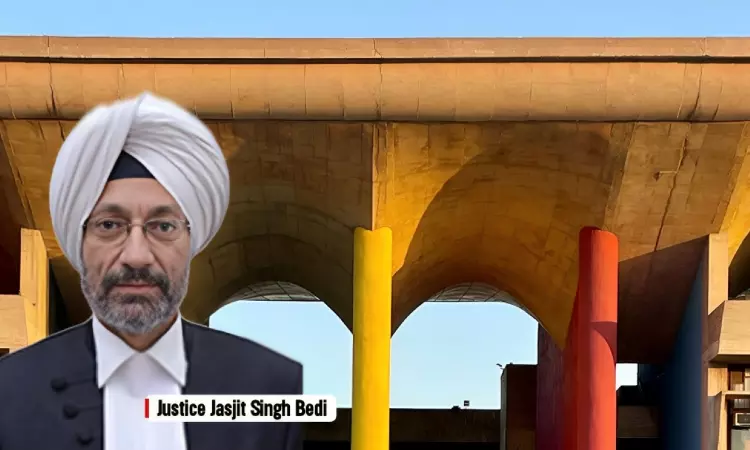Order Of Re-Investigation Must Come From Superior Court Like HC, Magistrate Not Empowered To Do So: Punjab & Haryana High Court
Aiman J. Chishti
16 Sept 2025 4:16 PM IST

The Punjab & Haryana High Court has clarified that the authority to direct a re-investigation lies exclusively with superior courts such as the High Court itself. Magistrates, the court emphasized, do not possess the power to order a re-investigation.
Justice Jasjit Singh Bedi explained,
"For the purposes of 're-investigation'/'de novo investigate' directions for the same must be issued by a superior Court such as the High Court and no such directions can be issued by a Magistrate. As regards 'further investigation', it is the domain of the Investigating Agency but it is desirable that prior intimation of the same is given to the Magistrate as the primary report under Section 173(2) Cr.P.C. already stands submitted."
The Court elucidated further that, in the case of multiple reports under Section 173(2) Cr.P.C. and 173(8) Cr.P.C., it is only a superior court such as the High Court that can direct the exclusion of any of the reports for the purposes of framing of charges. If not so done, it is the domain of the Trial Court to consider all the reports under Sections 173(2) Cr.P.C. and 173(8) Cr.P.C to either frame charges or discharge the accused.
Facts In Brief
These observations were made while hearing a plea for quashing of FIR under Sections 120-B, 406, 420, 506 (subsequently added Sections 201 & 109) of IPC.
The petitioner who was the initial complainant got registered an FIR under Sections 120-B, 406, 420, 506 (subsequently added Sections 201 & 109 IPC) at Police Station Ellenabad, District Sirsa against six accused persons alleging that the accused in connivance with each other had fraudulently induced the petitioner to pay a sum of Rs.42,00,000 approximately under the false pretext of securing his son Amritpal Singh a job as an Assistant Sub-Inspector in the Chandigarh Police with the aid of unnamed politicians.
Later, when the son of the complainant was not provided employment as promised, he sought the return of the same. The accused repaid a sum of Rs.2 lakhs and sought time to repay the remaining amount. However, they did not do so and to the contrary, threatened him with false implication in cases.
The accused persons approached the High Court seeking bail wherein the Court observed that the petitioner who is the complainant is prima facie a party to the scam and would be required to be nominated as an accused as well.
Consequently, the SP moved an application before trial court seeking permission for re-investigation. The same was dismissed. Later, a plea was filed by the accused persons before the High Court and the same was disposed of with directions to the concerned Commissioner of Police to consider any application moved by the petitioners seeking fair and impartial investigation.
Subsequently, a supplementary report under Sections 120-B, 201, 406, 420 & 506 IPC (Section 109 of IPC added later on) inculpating the complainant as an accused was filed.
It was argued that the petitioner was a complainant in the case and his subsequent conversion to being an accused in the supplementary challan is in violation of Article 20(3) of the Constitution of India inasmuch as material supplied by him during the course of the investigation is sought to be used against him which would amount to self-incrimination.
No offence under Sections 406/420 IPC is made out as the complainant who is now accused cannot be convicted for having committed cheating or criminal misappropriation of himself and in the absence of any invocation of the provisions of the Prevention of Corruption Act, the question of the culpability of the petitioner does not arise, the counsel for the petitioner added.
Observations
After hearing the submissions, the Court observed that "further investigation" can be conducted at any stage and the only requirement is that some more evidence must have been brought to the notice of the Investigating Agency. Therefore, the Court opined that the contention of the petitioner that the supplementary challan could not have been submitted cannot be accepted.
Referring to State of Bombay Versus Kathi Kalu Oghad, 1961, the Court opined that it would establish beyond doubt that for the protection under Article 20(3) of the Constitution of India the person concerned must be formally arrayed as an accused in order to claim the benefit of the guarantee against testimonial compulsion.
"Any evidence provided by a person to the Investigating Agency during the course of an investigation can certainly be used against the said person in case he had not yet attained the status of an accused which can only be attained when there is a formal accusation against him," it added.
The Court noted that in the instant case, the formal accusation against the petitioner was levelled only when the supplementary challan was submitted against him on 06.03.2025.
Therefore, any material supplied by the petitioner prior to him attaining the status of an accused would not amount to self-incrimination and therefore, he cannot claim protection under Article 20(3) of the Constitution of India, it added.
Mr. Arpandeep Narula, Advocate for the petitioner.
Title: GURMEET SINGH v. STATE OF HARYANA


